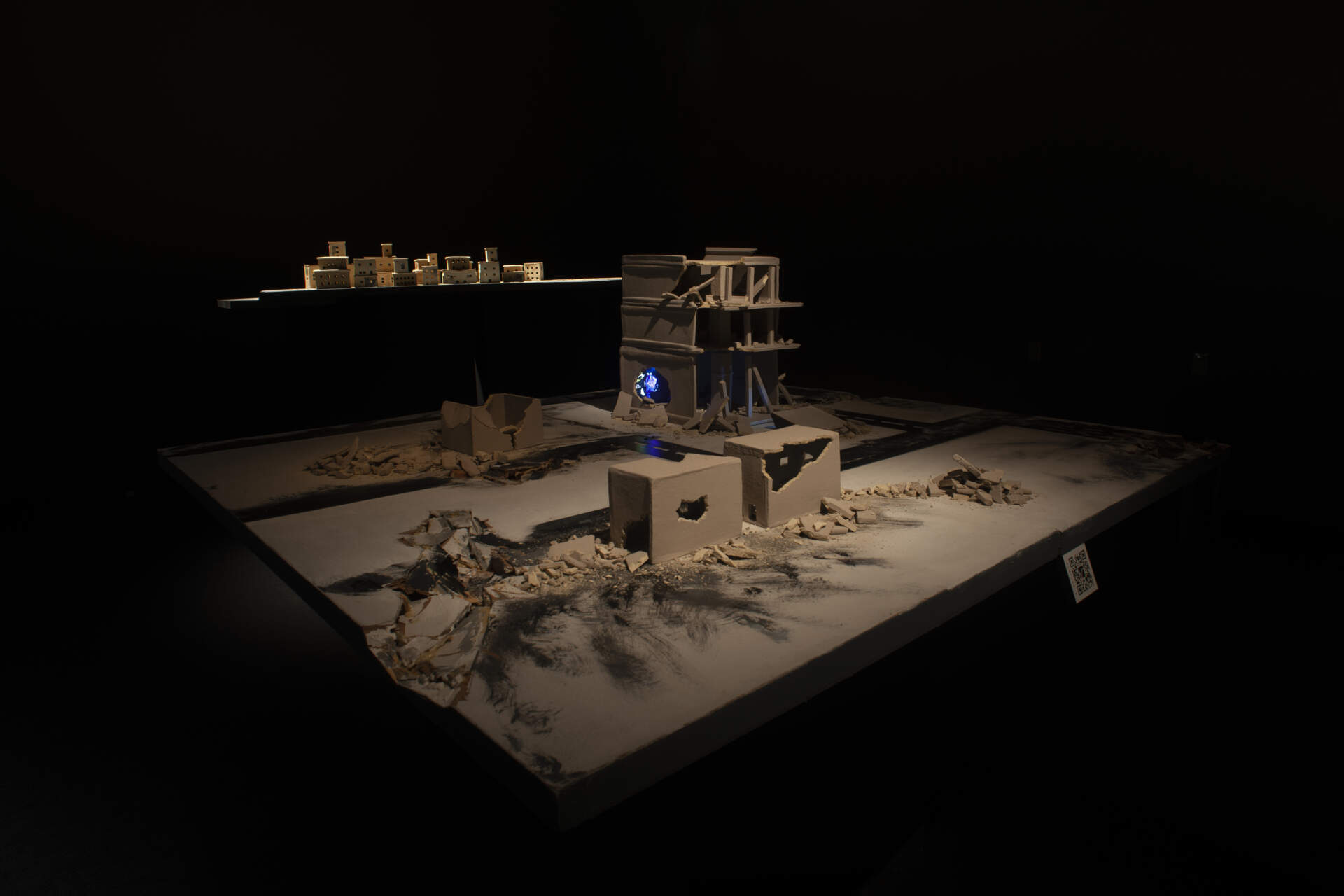Lisa Karrer (b. 1957)SHELTER Station 4
2020
Courtesy of the artist
Station 4 Ceramic Forms: In Syrian cities such as Aleppo, Hama and Homs, displaced citizens often remain in their destroyed neighborhoods, living in sections of their own bombed-out homes, until they are forced to leave.
Station 4 Video Scenarios: https://vimeo.com/507703883
Featuring: Pamela Rose and Craig Mangus, Fayeka, Hidyagua and Ahalullah Abdulghafar, Rahina and Palwahsa Basir, Tom Owens and Lisa Karrer.
Baseera
Afghanistan / Language: Dari
My two sisters are married. When they were coming to my house in Kabul on Friday night, I prepared their favorite foods: rice, biryani, and aush. These were dishes from our own country. They liked that, and I prepared it for them. It was so nice because we were together, we could drink tea and eat food. We didn’t even sleep, we stayed up and had fun all night! We were so happy we didn’t want to go to sleep! We played music on the TV, we danced, and we really enjoyed ourselves.
When I was in my own country and I was little everything was good. Everything was good for me, because I did not know anything else. When I grew up, I learned more, I began to feel more. There was war in my country, so I came here, and I am good now. Sometimes it is difficult for me because the laws are different than my own country. But I’m doing good here.
While I was living in Afghanistan, really, I loved Afghanistan. That was my own country, and I grew up there. I had good memories because I had good friends. I was comfortable with them, they were so friendly, and we had good relationships. When I first came here, it was so difficult for me, because I didn’t know anyone. But we are good now, we have become used to this life, we’re happy, and we consider the United States to be our country too.
Please note: Baseera’s narratives continue at Station #1, Station #3, and Station #5.
Zubaida
Iraq / Language: Arabic
Zubaida sings a song about her Homeland:
“This song was the first time sang at the war between Iraq and Iran. It shows the braveness of Iraqi soldiers and people, that even though with the sound of guns and the war, they went to the land of war, over the barrier, all the soldiers wanted to be in front. The soldiers who died, their blood smelled like camphor.”
Oh land!
Land, soil, your dirt is camphor
On the barrier sounded the gun rounds.
On the barrier we are all meeting together
We went back
To those who want to twist our arm
With broken arm
I swear that God (Allah) will be with you, land.
Land, soil, your dirt is camphor
On the barrier sounded the gun rounds.
Land, soil your dirt is camphor
On the barrier sounded the gun rounds.
Please note: Zubaida’s narrative continues at Station #5
Jainarayan
Bhutan / Language: Nepali
(Jainarayan spent 17 years in a Nepali refugee camp)
Jainarayan recites a poem he wrote:
Stagnant Mountain
Bhutanese Gorkhali humanitarian,
Like the bears of the mountain-dwelling Maoists,
Let’s think like winter and summer are the same,
and forget all the sorrows.
We dig the roads in-between mountains and the cars are running.
See today why are you wasting sweat.
Let’s remember the generation of Gorkhali and remove the martyr,
why wait now, let’s leave the monster.
Now remembering these miseries, our wisdom says that
“Bags of gold are like the dirt of your hands.”
What can be done with wealth?
The pleasure of eating nettles and greens with happiness in your heart is pleasing.
**Please note: Jainarayan’s narrative continues at Station #1
Zubaida
Iraq / Language: Arabic & English
Zubaida speaks in English about her life in Iraq and coming to America
Please note: Zubaida’s narrative continues at Station #5
